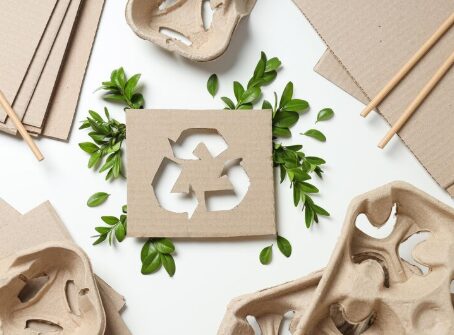Personal Protective Equipment (PPE) became a global staple during the COVID-19 pandemic, but its widespread use brought with it an environmental challenge—billions of single-use gloves, masks, gowns, and face shields now contribute to growing landfill waste. As industries continue to prioritize health and safety, a critical question arises: Can PPE be recycled?
The answer is not simple, but the emergence of recyclable and sustainable PPE alternatives is changing the landscape.
Why Traditional PPE Is Hard to Recycle
Most conventional PPE is made from a mix of synthetic materials such as polypropylene, polyester, latex, and vinyl. These items are often:
- Contaminated after use, especially in healthcare or industrial settings
- Composite products, combining multiple materials that are difficult to separate
- Non-standardized, lacking clear recycling guidelines
Because of these factors, traditional PPE is rarely accepted in standard recycling streams and is instead treated as hazardous or general waste.
The Rise of Recyclable PPE
Manufacturers and environmental innovators are responding to the waste crisis with recyclable PPE options designed for both protection and sustainability. These products are typically:
- Made from monomaterials (like single-type plastics or biodegradable alternatives)
- Designed for closed-loop recycling systems
- Engineered to maintain protection standards while reducing environmental impact
Examples include:
- Recyclable face shields made of PET plastic
- Gloves and gowns crafted from biodegradable polymers
- Reusable and washable masks with replaceable filters
Some large organizations are also implementing PPE take-back programs, where used gear is collected, sanitized, and properly recycled through specialized facilities.
Green Alternatives Worth Considering
- Reusable PPE: Masks, gowns, and gloves that are washable and sterilizable offer long-term cost and waste savings.
- Compostable PPE: Made from plant-based materials like cornstarch polymers, these degrade more quickly under proper conditions.
- PPE Recycling Partnerships: Some companies now partner with third-party recyclers who specialize in medical and industrial waste recovery.
What Businesses Should Do
- Evaluate Your PPE Supply Chain
Work with manufacturers who offer recyclable or reusable options that meet safety standards. - Educate Staff
Train teams on proper disposal and recycling practices for new PPE materials. - Participate in Specialized Recycling Programs
Engage with certified programs that handle contaminated or non-standard materials. - Track Environmental Impact
Measure the volume of PPE waste your organization generates and explore reduction strategies through green alternatives.
Green Alternatives Worth Considering
- Reusable PPE: Masks, gowns, and gloves that are washable and sterilizable offer long-term cost and waste savings.
- Compostable PPE: Made from plant-based materials like cornstarch polymers, these degrade more quickly under proper conditions.
- PPE Recycling Partnerships: Some companies now partner with third-party recyclers who specialize in medical and industrial waste recovery.
What Businesses Should Do
- Evaluate Your PPE Supply Chain
Work with manufacturers who offer recyclable or reusable options that meet safety standards. - Educate Staff
Train teams on proper disposal and recycling practices for new PPE materials.
Conclusion
While not all PPE is recyclable today, innovation is paving the way for a more sustainable future. Businesses, healthcare providers, and manufacturers have an opportunity—and a responsibility—to adopt smarter, greener protective solutions. Choosing recyclable PPE isn’t just a compliance move—it’s a strategic step toward environmental responsibility and long-term operational efficiency.



































